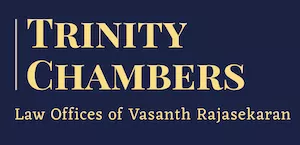Introduction
The Andhra Pradesh High Court, in Alliance Enterprises v. Andhra Pradesh State Fiber Net Limited (APSFL) [Arb. Appl. No. 48 of 2023], ruled in favour of appointing an independent arbitrator under Section 11(6) of the Arbitration and Conciliation Act, 1996 ("A&C Act"). The High Court rejected APSFL's argument that the arbitration application was time-barred. In this article, we examine the facts of the case and the findings rendered by the High Court.
Brief Facts
The dispute arose from a Work Contract dated 5 August 2016, under which Alliance Enterprises ("Applicant") was awarded a contract by APSFL for commissioning and maintaining last-mile optical fiber connectivity in Anantapur and Kadapa districts. The total work orders issued under the contract were valued at Rs. 12,26,63,520/-.
Despite executing the work orders, the Applicant claimed that APSFL failed to make payments amounting to Rs. 2,82,60,159/-. After repeated reminders went unanswered, APSFL eventually terminated the contract on 2 January 2019, which was communicated to the Applicant on 9 January 2019. Following unsuccessful settlement discussions, the Applicant issued a notice invoking arbitration on 17 October 2022.
Clause 25 of the contract contained an arbitration clause, stipulating that disputes would be resolved through a sole arbitrator appointed by APSFL's Managing Director. However, APSFL did not appoint an arbitrator within the stipulated period, prompting the Applicant to approach the High Court under Section 11(6) of the A&C Act.
APSFL opposed the application, arguing that it was time-barred since the contract was terminated in January 2019, and the Applicant should have filed for arbitration within three years from that date, i.e., by January 2022. APSFL further contended that, as per Article 137 of the Limitation Act, 1963, the three-year limitation period for filing an arbitration application had lapsed.
Findings of the High Court
Limitation Period Begins from Notice Invoking Arbitration
The High Court rejected APSFL's limitation argument, relying on Arif Azim Co. Ltd. v. Aptech Ltd. [(2024) 5 SCC 313], which clarified that the limitation period for an arbitration application begins when the arbitration clause is invoked, not from the date of contract termination. The High Court further cited Aslam Ismail Khan Deshmukh v. ASAP Fluids (P) Ltd. [(2025) 1 SCC 502], which held that the three-year limitation period for a Section 11 petition begins from the date when the other party fails or refuses to appoint an arbitrator in response to a valid notice.
Applying these principles, the High Court held that the Applicant issued the arbitration notice on 17 October 2022, and the Respondent failed to act on it within the required 30-day period. Since the Applicant filed the Section 11 application on 31 August 2023, well within the three-year limitation window from the date of failure to appoint an arbitrator, the High Court ruled that the application was not time-barred.
Loss of Right to Appoint an Arbitrator
The High Court held that APSFL forfeited its right to appoint an arbitrator by failing to act within the prescribed timeframe. Citing Datar Switchgears Ltd. v. Tata Finance Ltd. [2000 (7) Supreme 145], the High Court reiterated that if a party fails to appoint an arbitrator within 30 days of receiving a notice invoking arbitration, its right to do so is lost once the other party approaches the High Court.
Invalidity of Unilateral Arbitrator Appointment Clause
The High Court noted that Clause 25 of the agreement vested unilateral power with APSFL's Managing Director to appoint the arbitrator. Relying on Perkins Eastman Architects DPC v. HSCC (India) Ltd. [(2020) 20 SCC 760] and Central Organisation for Railway Electrification v. ECI SPIC SMO MCML (JV) [2024 SCC OnLine SC 3219], the High Court held that such clauses are invalid as they compromise the neutrality of the arbitration process. The High Court ruled that APSFL's failure to appoint an arbitrator in time, coupled with the invalid nature of the clause, warranted judicial intervention.
Appointment of an Independent Arbitrator
Given APSFL's inaction, the High Court exercised its power under Section 11(6) of the A&C Act to appoint a former judge of the Andhra Pradesh High Court, as the Arbitrator. The High Court directed the Sole Arbitrator to adjudicate upon the disputes arising from the contract and render an award within the statutory timeline.
The High Court also granted the Arbitrator the discretion to determine his fee in consultation with the parties, keeping in mind the Fourth Schedule of the A&C Act.
Comment
The decision strengthens the legal position that limitation for a Section 11 application begins only when a valid arbitration notice is issued and remains unanswered, rather than from the date of contract termination.
The High Court's rejection of APSFL's unilateral appointment clause aligns with the growing jurisprudence that discourages clauses granting one party exclusive control over arbitrator selection. By appointing an independent arbitrator, the High Court has upheld the principles of neutrality and fairness in arbitration.
The content of this article is intended to provide a general guide to the subject matter. Specialist advice should be sought about your specific circumstances.



